Pakistan's strongest suit
The country's greatest batsman, the gutsiest, a dashing rescuer, and others make up the middle-order shortlist
Osman Samiuddin
19-Apr-2010
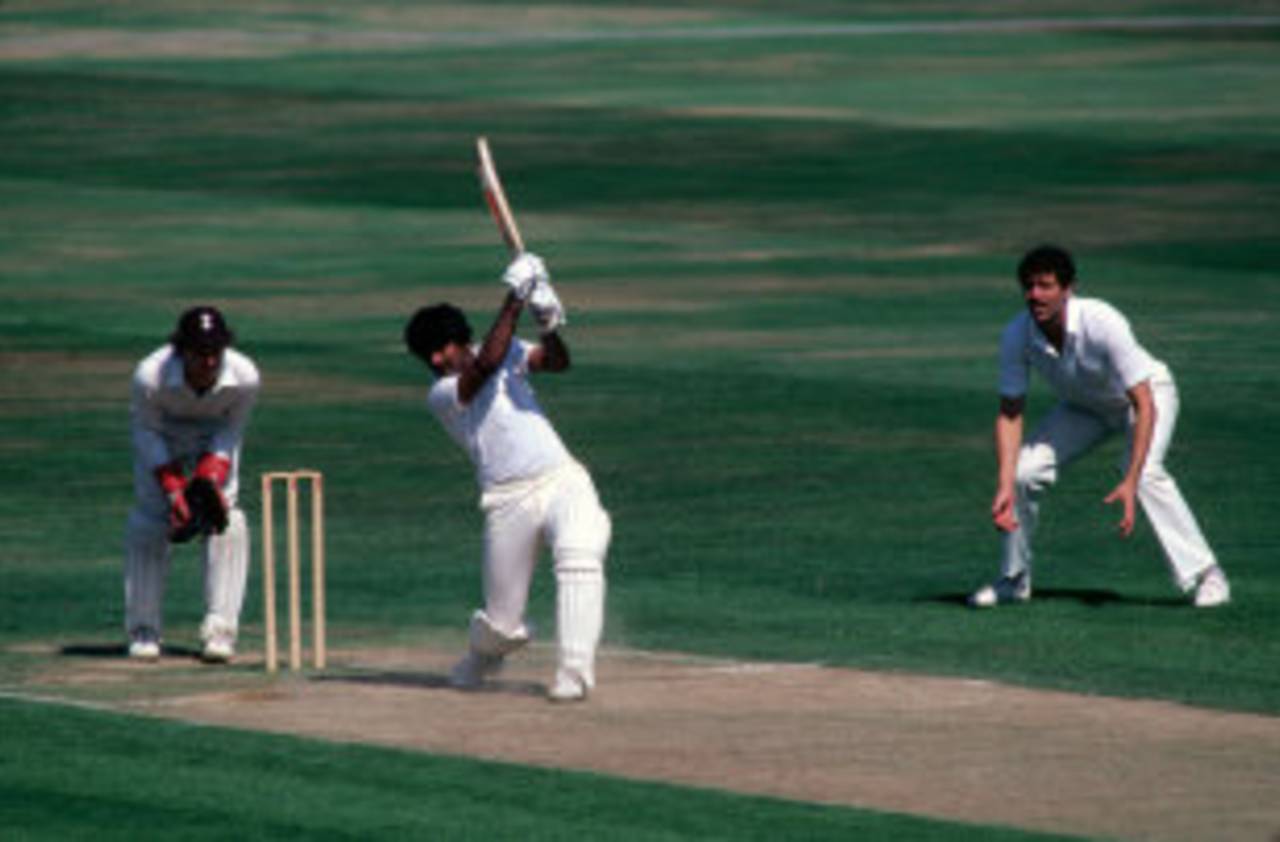
Javed Miandad: Pakistan's top run-getter and best batsman • Getty Images
The engine room of Pakistan's batting has forever been the middle order. Good openers have come, even a couple of greats, but the real stories have been written by those who come in once the openers have gone. Over the years, memories are brightest of the great triumvirates or quartets that have formed the belly of the line-up: Zaheer Abbas, Javed Miandad, Asif Iqbal, Mushtaq Mohammad through the 70s; Younis Khan, Inzamam-ul-Haq, Mohammad Yousuf through the 2000s.
How spoilt Pakistan is for choice here shows in that nine names suggest themselves automatically, and probably others will add a couple more at least. Wasim Raja and Ijaz Ahmed, for example, despite their outstanding records against the leading pace attacks of their time (West Indies and Australia respectively) might have made it in some other lists.
The other dilemma is how many to have, of course. Should there be four specialist batsmen in the middle order, to shore up what is Pakistan's weaker suit? Or does the guaranteed presence of one of the world's greatest allrounders soften that need?
And one of the beauties of middle-order batsmen here has been there flexibility: barring a couple of names, most of the nominees have played at several positions in the middle order, with success. Ensuring the right order is critical to Test match success and that makes this selection trickier still, and one that will likely be most open to debate.
The contenders
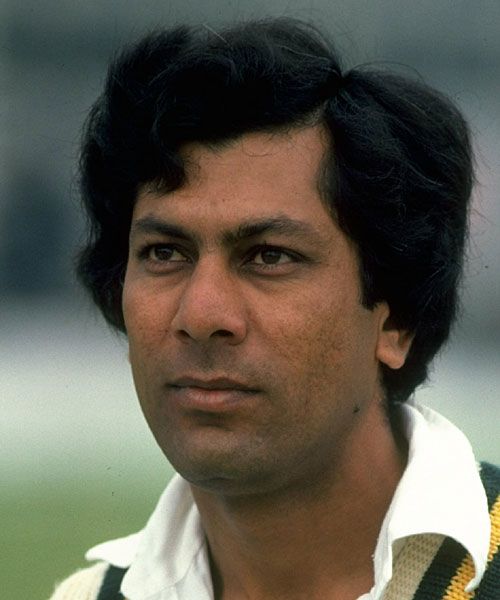 |
Not for nothing was he called the Asian Bradman. Abbas had a monstrous appetite for big runs; four of his 12 Test tons were doubles, and he is the only Asian batsman to hit 100 first-class hundreds. He was beautiful to watch too.
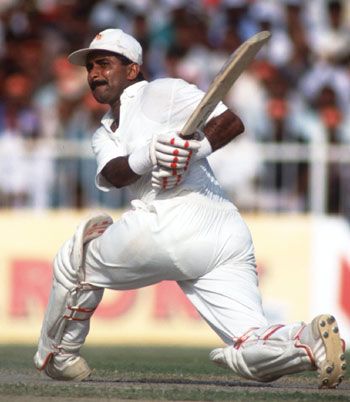 |
Few would disagree that Miandad is Pakistan's greatest batsman. He was a free-spirited, full-stroked attacker when he began but became such a calculating mastermind thereafter that nobody minded. His Test average never fell below 50, from day one to the end, and he remains the highest Test run-getter for Pakistan. The nurdles and nudges, his presence at the crease, and an incredible brain, which made batting a form of sledging - no match was ever lost while Miandad was at the crease.
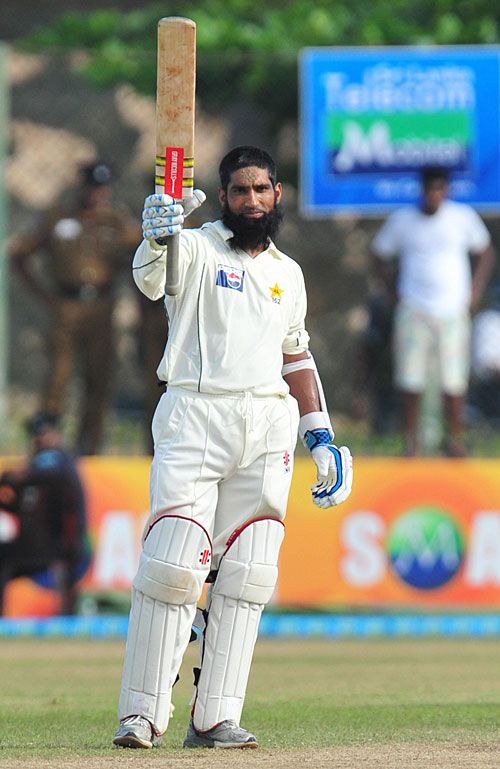 |
A direct descendent of Abbas in more ways than are immediately apparent. Like Abbas, he is fond of scoring big, and like Abbas, his range of strokes is as vast as it is elegant, constructed from a high back-lift, quick hands, stillness and lazy feet. In 2006 he was, without doubt, the best batsman in the world, during a record-breaking year. But for many eyes his batting was never as beautiful and productive as during a bewitching Melbourne Boxing Day hundred in 2004-05 against two of the greatest bowlers the game has seen.
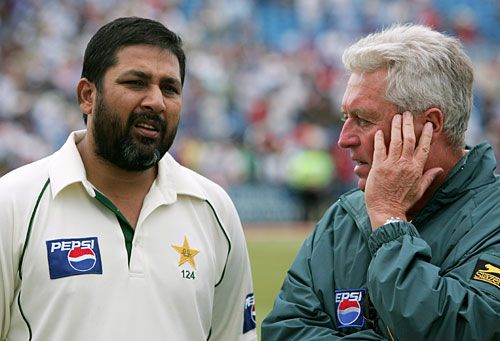 |
Not much separates the standings of Miandad and Inzamam at the very top of Pakistani batting. Like Miandad, Inzamam was a pure match-winner, often at his best with his side at its worst; but with many more strokes than Miandad. The best Inzamam innings are the ones he led Pakistan to a win in, and there are plenty. His bulky frame brought power, but a sharper mind than always apparent also allowed a surprising dexterity of touch.
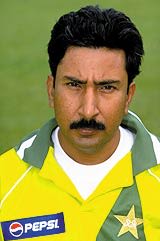 |
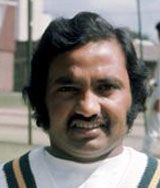 |
A cheeky, innovative and aggressive batsman, Mushtaq was not as gifted as a couple of his brothers, but his personality and will saw him through to greater success. In a long career he ended with a batting average just under 40 - a proper benchmark in those days - and was, till the end, a fine lower-order organiser. His batting and captaincy were instrumental in Pakistan's rise in the mid-70s, and he wasn't a bad legspinner either.
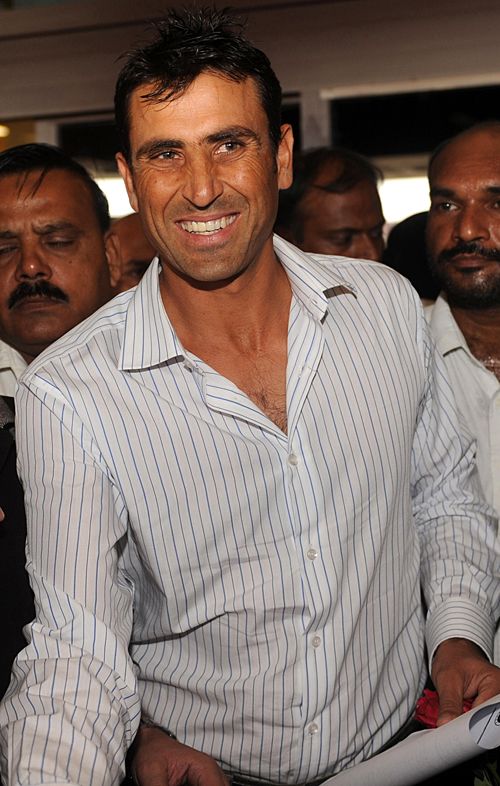 |
Pakistan's gutsiest batsman currently, Younis, after a shaky start, has become one of Pakistan's best one-downs (some achievement, given the openers he has had). Though he can be technically awkward, he is solid, and his fearlessness makes up for the rest. On tougher wickets around the world, he is probably Pakistan's most well-equipped batsman, with a range of shots not entirely orthodox but not entirely unorthodox either.
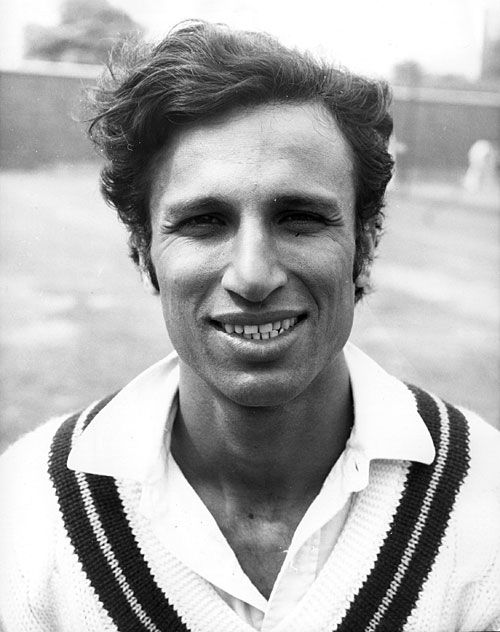 |
A dashing rescuer of hopeless causes, Iqbal epitomised much of Pakistan's punch through the 70s. It took a legendary 146 at The Oval - made from No. 9 - to convince others he was a batsman first. Alongside Mushtaq, he ensured the lower middle order was not only robust but fairly enterprising; he revolutionised the role of running between the wickets.
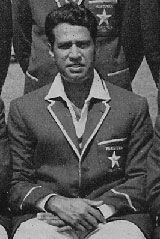 |
Pakistan's first No. 3 of genuine quality, Saeed scored over 500 runs in his debut Test series in the Caribbean. He was a particularly fluent driver in the "v", and when he got in, big scores were on the cards. Three of his five hundreds are 150-plus and to end with an average of over 40 in the time he played is to suggest considerable ability and success.
We'll be publishing an all-time Pakistan XI based on readers' votes to go with our jury's XI. To pick your middle-order batsmen click here
Osman Samiuddin is Pakistan editor of Cricinfo